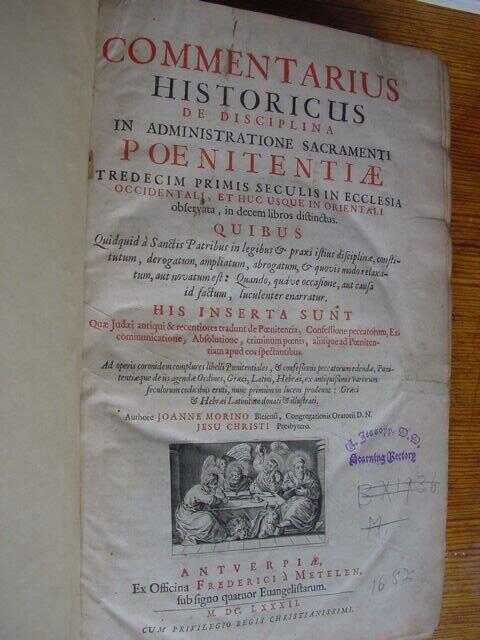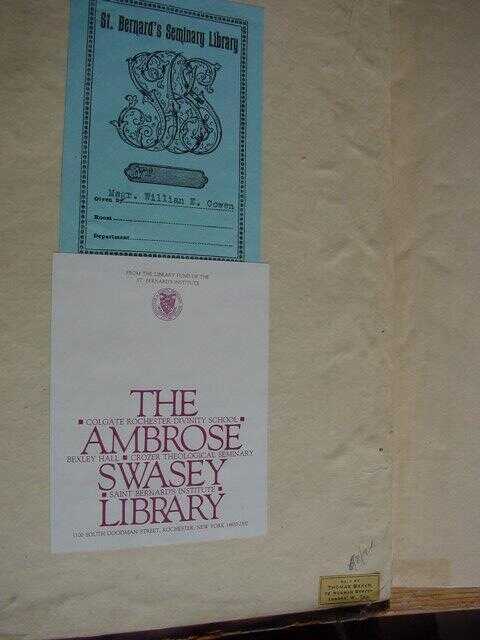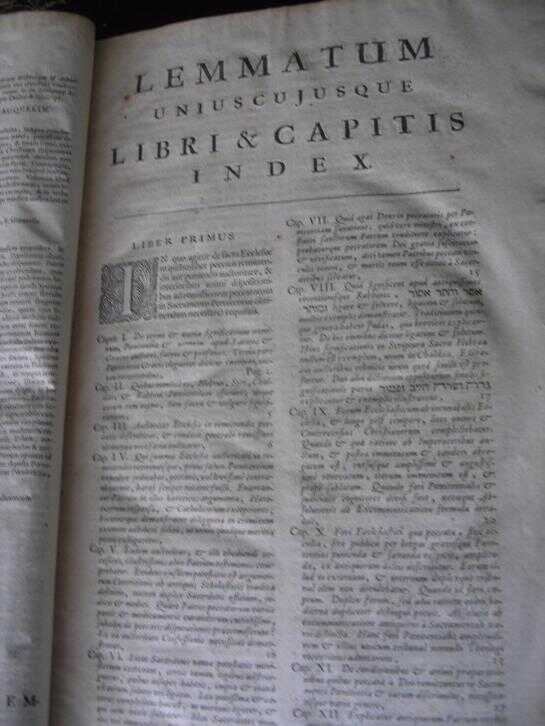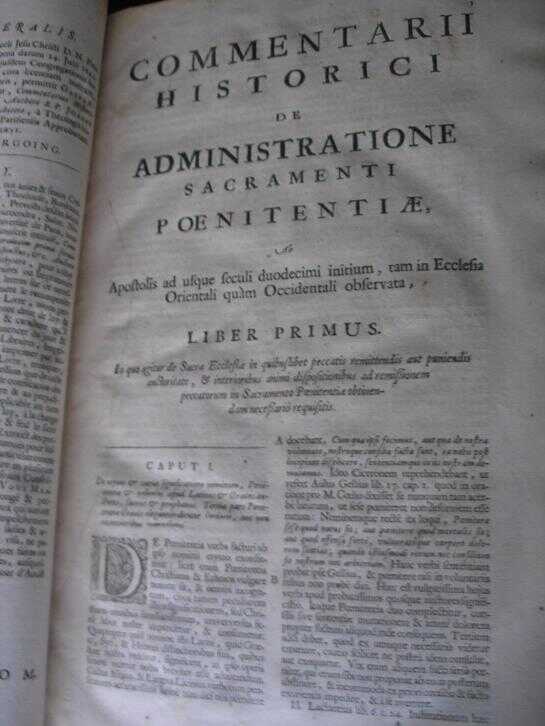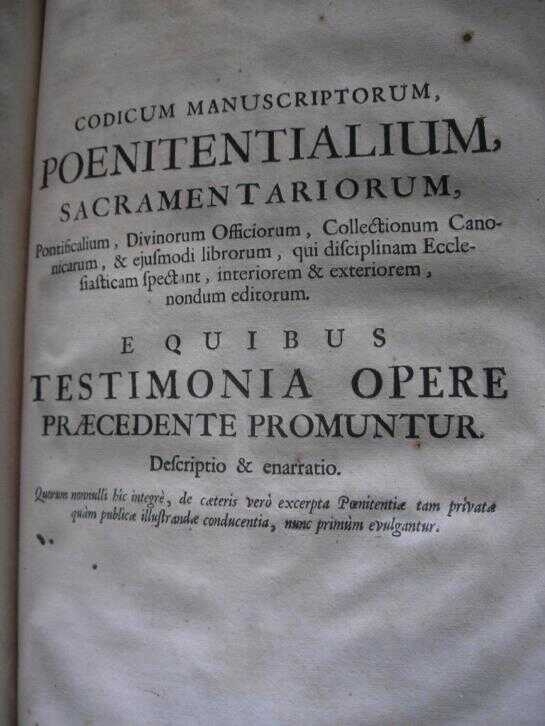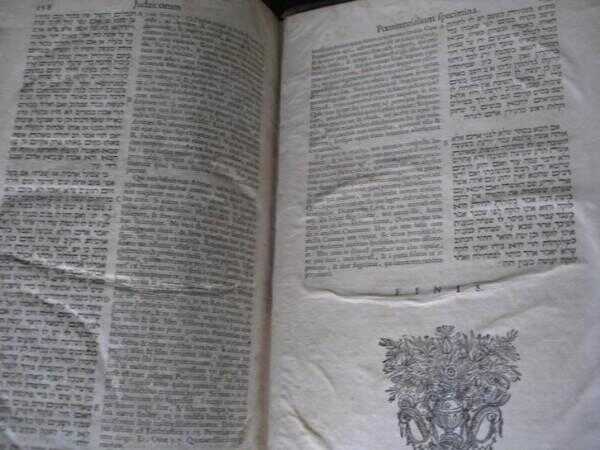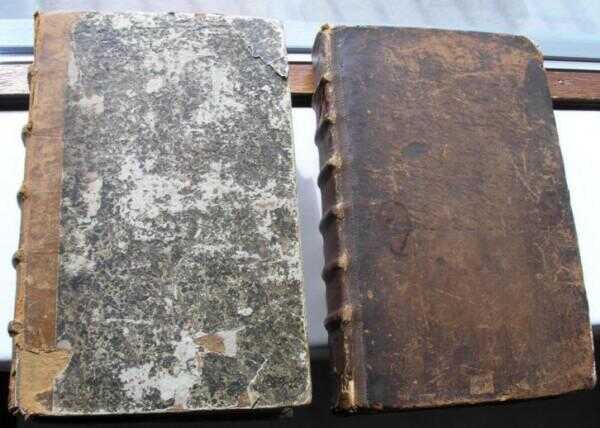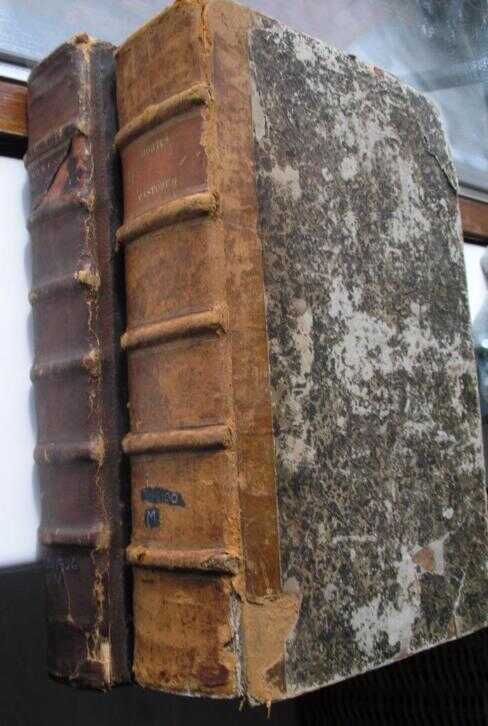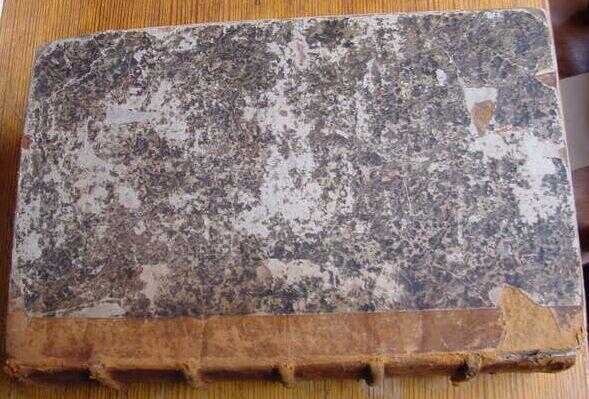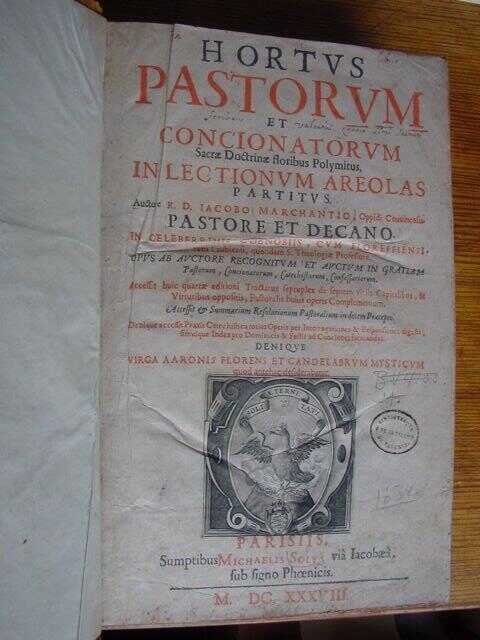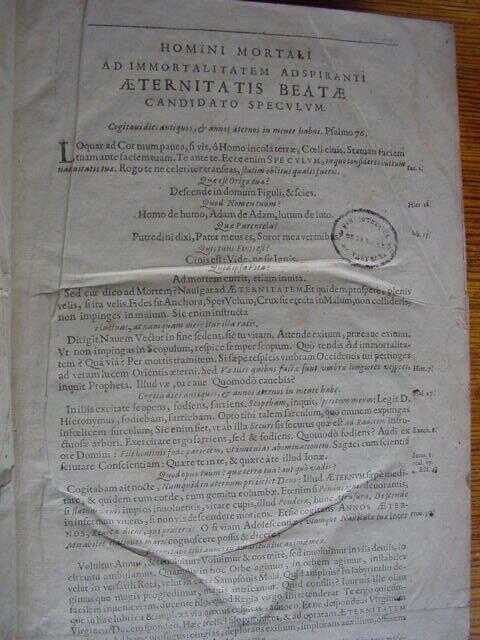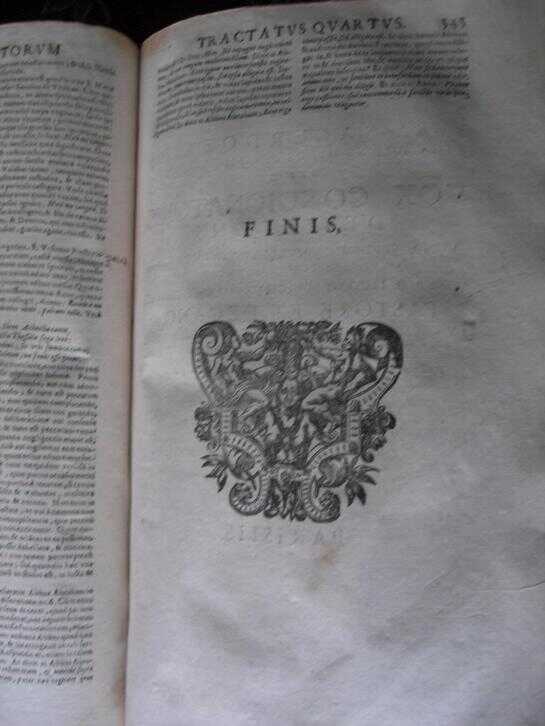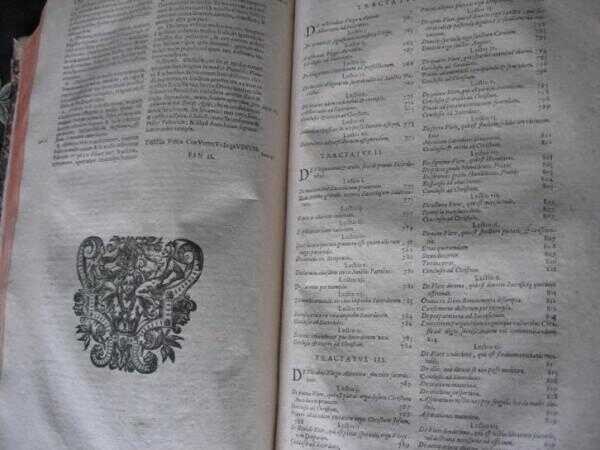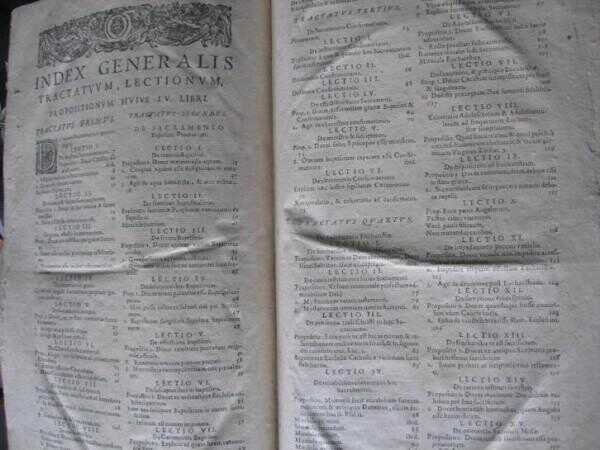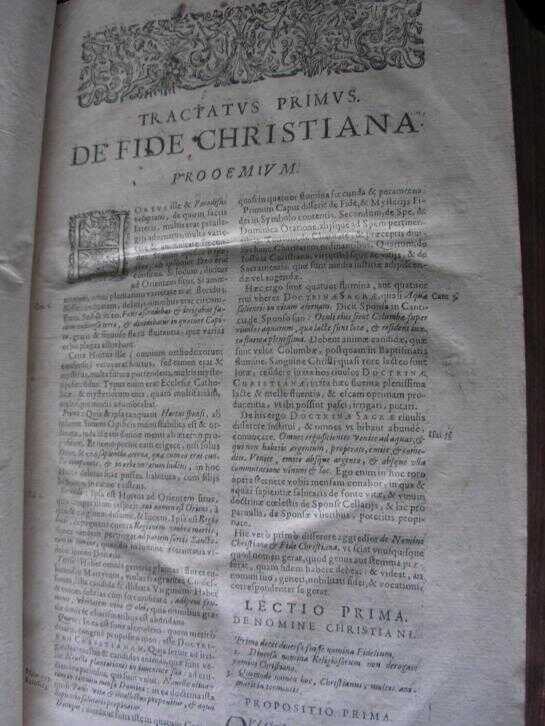Home > Antiek en Kunst > Antiek - Boeken en Bijbels
Uitg. 1638- Jacob Marchand + Uitg. 1682 - Joanne Morin
Beschrijving
Uitg. 1638- Jacob Marchand- Hortus pastorum et concionatorum.Uitgave uit 1638 ; Parisiis : sumptibus G. Alliot, 1638. Jacob Marchant.
35x23x8 cm. 880 blz. dan index en dan nog 369 blz.
Hortus pastorum et concionatorum, sacrae doctrinae floribus polymitus... auctore R. D. Jacobo Marchantio,... Accessit huic quartae editioni Tractatus sextuplex de septem vitiis capitalibus et virtutibus oppositis... Accessit et Summarium resolutionum pastoralium in decem praecepta. Denique accessit Praxis catechistica... Denique Virga Aaronis florens et Candelabrum mysticum...
MARCHANT (Jacobus), geboren te Couvin, licentiaat in de H. Godgeleerdheid en hoogleeraar in het Norbertijner klooster van Floreffe en in het Benedictijner klooster te Lobitz, vervolgens pastoor en deken te Couvin, in het kerspel van Luik, heeft geschreven:
Rationale Euangelizantium sive doctrina et veritas Euangelica, per anni circulum plebi e cathedris proponenda. Montibus excudit Franc. Waudraeus. 1637. 2 Th. 4o.
Hortus Pastorum et Concinionatorum.
Candelabrum mysticum, de sacramentis Ecclesiae.
Virga Aaronis, sive Directio vitae Spiritualis. Tract. Sepemplex de VII vitiis capitalibus et virtutibus oppositis.
+
Uitg. 1682-Joanne Morin: Commentarius Historicus de Disciplina
36,5 x 23,5 x 5,5 cm. 819 + 159 blz.
Commentarius Historicus de Disciplina in administratione sacramenti Poenitentiae tredecim primis seculis in ecclesia occidentali et huc usque in orientali obfervata, in decem libros distinctus...
Authore Joanne Morino.
Antverpiae, Ex Officina Frederici A' Metelen, 1682. First edition.
Jean Morin (Latin: Joannes Morinus) (1591 - 28 February 1659) was a French theologian and biblical scholar.
He was born in Blois, of Protestant parents. He learned Latin and Greek at Rochelle, and continued his studies in Leiden, subsequently moving to Paris. His conversion to the Roman Church is ascribed to Cardinal du Perron.
In 1618 he joined the congregation of the Oratory, and in due course took priest's orders. In 1625 he visited England in the train of Henrietta Maria; in 1640 he was at Rome, on the invitation of Pope Urban VIII,[2] who received him with special favor. He was, however, soon recalled to Paris by Richelieu, and the rest of his life was spent in incessant literary labor.
The Histoire de la délivrance de l'Église chrétienne par l'empereur Constantin, et de la grandeur et souveraineté temporelle donnée a l'Église romaine par les rois de France (1630) gave great offence at Rome, and a Declaration (1654), directed against faults in the administration of the Oratory, was strictly suppressed.
Morin is best known for his biblical and critical work. By his editing of the Samaritan Pentateuch and Targum, in the Paris Polyglott, he gave the first impulse in Europe to the study of this dialect, which he acquired without a teacher (framing a grammar for himself) by the study of manuscripts newly brought to Europe. Not unnaturally, he formed a very exaggerated view of the value of the Samaritan tradition of the text (Exercitationes ecclesiasticae in utrumque Samaritanorum Pentateuchum, 1631). A similar tone of extreme depreciation of the Masoretic Hebrew text, colored by polemical bias against Protestantism, affects his major work, the posthumous Exercitationes biblicae de hebraeici graecique textus sinceritate (1660), in which, following in the footsteps of Cappellus, he brought arguments against the then current theory of the absolute integrity of the Hebrew text and the antiquity of the vowel points.
Advertentie


